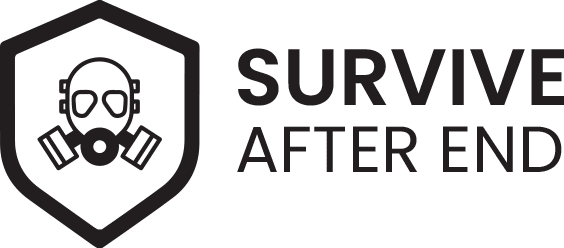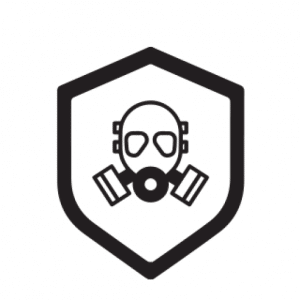Many people have talked about the skills that are most needed for surviving a post-apocalyptic society: guns, combat training, farming and construction skills.
But what if you want to keep your job even after society has collapsed?
What kind of jobs are still poised to exist despite everything going wrong?
There is no shortage of professions that depend on goods and services that, even in the event of a terrible disaster, will still be needed.
Here are 24 jobs that will most likely remain intact after an apocalypse.
1. Construction Worker
Construction workers are the backbone of the rebuilding process following a disaster.
After hurricanes, tornadoes or floods they’ll use heavy machinery to cut up and remove rubble and debris before construction crews come in to start building again.
While it’s not an easy job, construction workers have been called some of the toughest people on earth because they’re usually willing to work in dangerous environments for long hours at a time.
2. Truck Driver
Truck drivers are the backbone of the trucking industry which is crucial to getting supplies to survivors after a disaster has occurred.
They’re also needed when it comes time to bring in supplies from emergency centers or other points outside the affected area.
Truck drivers can be found driving 18 wheelers, passenger vans, dump trucks and anything else that weighs over 10 tons.
Whether you’re a truck driver or not, working in emergency disaster zones is typically one of those occupations one must take on in order to get by.
3. Police Officer
While it’s true that a police officer’s job is risky and often dangerous, becoming a police officer anywhere is likely to be one of the few jobs that will remain unchanged during a time of disaster.
Crimes tend to skyrocket following natural disasters because people are more prone to looting stores and stealing items when they’re struggling to survive.
As such, police officers will still be needed in order to keep control of the situation.
4. Firefighter
One of the primary reasons why police officers are first on site when a disaster hits is because they know firefighters will be along shortly after to help assess the danger and put out any fires.
Firefighters are needed to stop additional damage from occurring once fires have been put out.
They also need to assist with rescue efforts and operate equipment like backhoes, jackhammers or even front-end loaders in order to tear apart buildings that have been destroyed so that people can be rescued inside them.
5. Nuclear/Radiation Technician
Nuclear technicians are needed to make sure that nuclear waste is put into safe containers and that nuclear materials are properly contained in case a fire or other disaster causes them to spread into a populated area.
6. Gravedigger
Gravedigging is a necessary profession in disaster zones and it’s one that’s likely to remain unchanged no matter what the job market looks like (even after doomsday).
The more bodies that are recovered and buried properly following a disaster, the easier it will be for survivors to move on.
In order to provide bereaved families with some kind of closure, workers at graveyards should be ready for anything going forward.
7. Automobile Mechanic
Another occupation that will likely be around even after doomsday is automobile mechanic.
There’s always a need for auto mechanics and they’ll likely be the ones on scene to assess damage done by fires, tornadoes or floods right away so people can start driving again.
Auto mechanics will also be needed to perform other repairs in replacement vehicles following a disaster as well.
8. Paramedic
In the United States, paramedics are typically first responders in emergency situations and they’ll need to be available for disasters as well.
Even though a paramedic’s job can be stressful and dangerous, being able to respond quickly following a disaster is essential in order to save lives and get people feeling better as soon as possible.
9. Sanitation Worker
Sanitation workers are considered some of the most important members of any community because they’re often responsible for cleaning up after disasters strike.
They’re the ones who will be picking up debris and contaminated water and making sure that trash is disposed of properly so that animals don’t spread disease to everyone.
Sanitation workers are also tasked with disposing of hazardous materials.
10. Park Ranger
A job in which you get to spend all day outdoors is likely to remain pretty safe even after doomsday hits because people love to spend time in parks, especially on hot days when an amusement park wouldn’t be able to operate at full capacity.
And if a natural disaster were to strike, park rangers would be needed to help people evacuate so they don’t get hurt.
11. Janitor/Custodian
If you don’t mind mopping up dirty floors and bathrooms then cleaning jobs might be available for the taking even on the world’s worst day ever.
People will be cleaning up after any disasters that strike and when they do, janitors and custodians will need to be around in order to keep the buildings and grounds cleaned up.
12. Mechanic
Though technicians sometimes specialize in just a few areas, mechanics are experts in many different types of professions.
They’re the ones that can fix all kinds of things; from cars to boats to tractors. If you want to keep your family safe and you have the ability to fix broken things, then mechanics are among the most important people on the planet.
13. Zookeeper
In a post-apocalyptic world it’ll be important to have animals around to keep the ecosystem in balance, but these animals also serve a practical purpose.
For example, they can be used as guard dogs and as food sources for people.
Even if people don’t have jobs as zookeepers after Doomsday, the animals will still need caretakers because they’re part of an ecosystem.
14. Hunter
Most people will survive Doomsday if they’re able to hunt and gather their own food, but it’s also important that these hunter-gatherers have the skills to bring home a full stomach.
And hunter-gatherers are responsible for keeping animal populations in check, so they’ll be in demand as well.
15. Gardener/Plant Scientist/Botanist
A post-apocalyptic world will be one that’s desperately seeking out solutions to the many problems it will face and in doing so, it’ll pay for the skills that can help find these solutions.
With a variety of plants and animals to work with, creating a new ecosystem will take intelligence, patience, and many many years of thought.
Note: I put these three together because they have similar responsibilities.
16. Architects
Architects will be in demand for re-building the world, taking into consideration what it’s going to look like in that new world and how best to incorporate things like gardens and water ways.
17. Nutritionist
With the land and the air no longer polluted with chemicals from plants, animals, and people, the oceans will be deep green and full of fish, as will farmland.
Most crops will grow in abundance.
The need for nutritionists who can teach us how to eat properly again is a huge market opportunity.
Where once those who knew how to feed their bodies were looked down upon as sickly, now they’ll be honored as wise and caring healers of the earth.
18. Teacher
People are going to need somewhere to learn the importance of living in with the earth. Teachers will be needed to educate people on how to plant a garden and make compost.
It’s crucial that we learn how to live off the land.
19. Cook
The ability to cook will be essential to any post-apocalyptic world.
Food may not be plentiful, but without the skills that come with knowing how to cook food—or how to preserve it for a later date—people will die.
Knowing how to cook is also an important part of growing up in America because eating properly is essential for survival and being able to feed yourself is a great way to become independent and independent is key when you’re trying to survive a doomsday event.
20. Craftsman/Craftswoman
People are no longer making things for their own use so craftsmen and craftswomen will be in demand again to repair things.
21. Farmer/Chef
With nature once again coming back to life, people will want to eat fresh food, grown by a farmer or in their own garden.
Without fertilizers that kill the soil and don’t allow for organic growth, we’ll need farmers who know how to grow food without the use of chemicals.
With more plants in the world to eat from, chefs who have experience growing their own ingredients will also be crucial.
22. Historian
Because knowing what’s happened in the past is important when you’re trying to figure out how to maintain peace and balance in the future, historians will become important again.
23. Judge/Jury
With the world essentially everywhere and once again in balance, people will most likely be taking care of their own communities.
24. Electricians
With the other extreme of electricity gone, electricity will once again be in use.
Without a good source of energy,
we will need people who know how to fix problems and electricians, carpenters, and construction workers with the skills to do their job without electricity.
in conclusion Okay, so that’s a lot to take in. But as you can see, the world we live in today is going to look very different from a post-doomsday world. The most important thing to take away from this list is that while doomsday is scary, it isn’t the end of the world and there will be plenty of things to keep us busy. The sooner you make your plans for living in a changed world, the better off you’ll be when doomsday hits.


